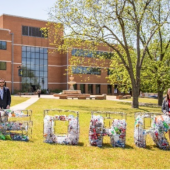
Abstract: Southern Arkansas University has developed the SOAR Sustainability Conference to spotlight current sustainability-related efforts. SOAR, representing the southern Arkansas region, was added to the conference name to signify the area of emphasis for the event. This spring conference event has been held in April of 2022 and 2023. The 2023 conference included over 50 presenters from academia, private businesses, government agencies, and volunteer organizations. Session topics were aligned with the critical components of sustainability education including anticipatory thinking, empathy, change of perspective, justice, responsibility, and ethics. Surveys were distributed to SOAR conference attendees to gauge their level of attitudes, knowledge, and behavior regarding sustainability issues. Responses were very positive overall, showing gains in attendees’ attitudes, knowledge, and behavior between 2022 and 2023. The behavior category showed the largest annual increase while knowledge gains over the same period were lower. Overall, the SOAR Sustainability Conference has shown success in engaging students and community stakeholders to take part in this effort to address sustainability-related challenges in the area.
Continue ReadingThis article tells the story of two examples of local food systems initiatives involving the author, his students, and a diversity of community stakeholders. The focus is on an approach to local food systems work that builds local capacity and consciousness to create regenerative and transformative food systems. It briefly highlights a few of the many challenges that consistently show up in such work. The article encourages a transdisciplinary, intercultural, transformative approach to sustainability education and regenerative agriculture. As we face the complex socio-ecological challenges of the twenty-first century, an important opening emerges for sustainability educators and agroecologists to amplify the edges of socio-ecological consciousness and capacity and direct in sight and commitment toward action that best regenerates soil, ecosystems, communities and nourishes mutually sustainable futures.
Continue Reading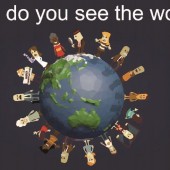
Abstract: Latest results in Education for Sustainable Development (ESD) research and practice show a tendency towards more holistic approaches aiming at deep transformation of the self and the meanings of human existence. Aligned with this, we present the Transdisciplinary Framework of Worldviews and Behaviours (TFWB) to describe the possible formation and expression of a worldview, a complex constellation of meaning and identity from which all human conduct emerges. Four key principles arising from the TFWB are: 1) The whole embodied nervous system is greater than the sum of its separated parts, especially when it comes to intelligence (information processing) and learning (meaning making); 2) The mind is a highly emotion-dependent and mostly unconscious entity; 3) A worldview is a unique arrangement of meaning each person builds, and lives through; and 4) Increasing self-awareness about how a personal worldview is formed and expressed generates increasing opportunities for that individual to explore and build a different meaning for their experience, or to explore and choose different forms to express it (behave). The TFWB informs a new perspective on learning that could be useful for the achievement of ESD’s transformative goals, guiding the innovative design of educational initiatives encouraging new conceptualizations about the meanings of being human; thus, facilitating potential behavioural transformations toward a more sustainable existence.
Continue Reading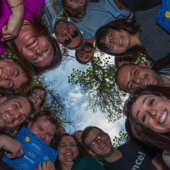
Abstract: In order to effectively address global sustainability challenges, a wide spectrum of society must be engaged. Universities generate knowledge, enhance understanding of sustainability problems and identify potential pathways to solutions. However, the information they produce often does not reach the public sector. Primary and secondary schools contain expert teachers and science communicators, but they are often limited by educational standards and other teaching duties. On the other hand, museums, such as science and natural history museums, are particularly skilled at translating scientific information so that it engages and excites the general public without the limiting expectations of school systems. Thus, partnerships between museums and universities offer great potential for disseminating sustainability knowledge and solutions on a global scale. However, given the complexity of sustainability problems, partnerships between universities and museums require a deep level of collaboration beyond the scope of information or resource exchange. In this article, we explore our experiences collaborating with museums, reflecting on challenges and, ultimately, identifying four main focal areas to successful, transformational collaborations. Though we focus on museum partnerships from the university perspective, we contend that any institution can apply these four steps to make progress on wicked problems that require immediate action.
Continue Reading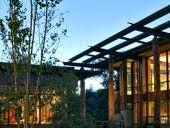
Medrick JSE Nov 2015 Hope Issue PDF Abstract: This article examines the purpose, design, process, and operations of Prescott College’s PhD Program in Sustainability Education. It describes how students come into the program, participate in foundational course work, operate within a cohort framework, and provide feedback and support for each person’s […]
Continue Reading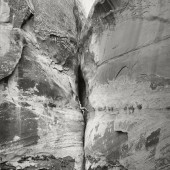
This opinion/editorial presents the belief that love is present in all human lives as an emotional experience and may be present in all human lives as an intellectual idea as well. It considers possible actualities that lie behind some common thoughts (clichés) about love. The author presents the idea that even though love is central to our lives, the word love, if not the concept of love, is avoided in academic discourse. The author explores some of the scholarly, theoretical, and philosophical writing about love, noting that it is often named something other than love (compassion, well-being, altruism, etc.). The question and invitation are presented to consider what might be possible if love were intentionally and specifically identified as a methodology, pedagogical practice, and value in leadership, activism, and education.
Continue Reading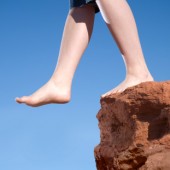
This article is an exploration of vulnerability and the experience I had as an artist inhabiting the art of writing poetry; a creative medium that is new to me. I begin with a brief examination of vulnerability as it is defined today culturally and move towards a personal exploration of what vulnerability feels like within an intentional and unfamiliar creative process. Through this process I learned from vulnerability– things like like navigating open space, respecting how growth unfolds, that vulnerability is an integral part of loving an living life fully, the relationship between vulnerability and love, and the magic that happens when bodily experience aligns with word. This article is an exploration, and affirmation, of vulnerability as a deep site for learning and growth and a requirement, if we are to love deeply.
Continue Reading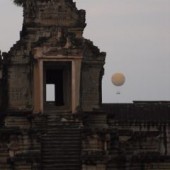
Jenny Finn reminds us that we all carry a full geography of internal landscapes, embodied in the simple act of breathing. As we consider the deep and complex issues that entering learning about sustainability in the outer world, is it not essential, she asks, that we connect, profoundly through each breath we take, with those internal landscapes?
Continue Reading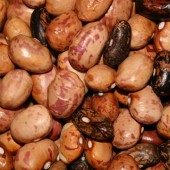
With elegant simplicity, Rick Medrick makes the case for the importance of transformational change as part of our education process to bring about sustainability. He brings forth the need for creating learning environments where real, transformational change, can happen. And he invokes the role of the “servant-leader” in establishing those environments as part of an organic and evolutionary change process that we can help to generate.
Con una sencillez elegante, Rick Medrick hace el caso por la importancia del cambio transformacional como parte de nuestro proceso educativo para llegar a la sustentabilidad. Trae al frente la necesidad de crear ambientes de aprendizaje a donde el cambio verdadero transformacional puede ocurrir. Y el invoca el papel del “líder-sirviente” en establecer estos ambientes como parte de un proceso de cambio orgánico y evolutivo que nosotros podemos ayudar en generar.
Abstract Today we find ourselves standing in the crossroads of our future. Will we learn from our past mistakes and successes or become yet another story of societal and ecological collapse? As sustainability educators we are called to consider our contribution to education innovation by asking, as does Stephen Sterling (2001), what is education innovation, […]
Continue Reading